A Conversation With Christie Eliezer, music journalist
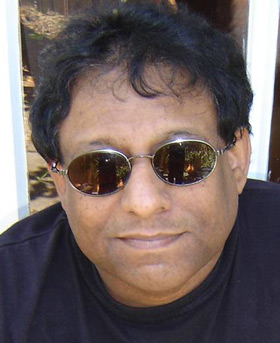 Christie Eliezer. Dude is one of the mostly widely-read music journalists in the world. Though I first heard of Christie through his weekly Australian music industry round-up for themusic.com.au – which is syndicated in one of the publications I write for, Rave Magazine – I soon found that his influence extends far beyond that column. He’s written three music-related books; his latest, High Voltage Rock ‘N’ Roll, was released in 2007. I asked Christie for this interview because he’s a super-huge music journalist, and I wanted to know how he does it and why he loves it. Righteous.
Christie Eliezer. Dude is one of the mostly widely-read music journalists in the world. Though I first heard of Christie through his weekly Australian music industry round-up for themusic.com.au – which is syndicated in one of the publications I write for, Rave Magazine – I soon found that his influence extends far beyond that column. He’s written three music-related books; his latest, High Voltage Rock ‘N’ Roll, was released in 2007. I asked Christie for this interview because he’s a super-huge music journalist, and I wanted to know how he does it and why he loves it. Righteous.
Christie, your weekly industry round-ups comprise a huge amount of information. Is this your full-time job on behalf of themusic.com.au?
Writing is my full-time job, but writing for themusic.com.au is just one of the many things that I do. I actually write for about 23 different publications around the world on music, fashion, travel and new technology. In between this, I also do projects like “High Voltage“, which was released two years ago. I’m currently writing a film script.
I syndicate a column of music industry news not just for themusic.com.au but also to Beat in Melbourne, The Brag in Sydney, Rave in Brisbane and dB in Adelaide. So each week I collect the news, and send different items to different magazines. I also write for the US magazine Billboard, so some of the column goes in there as well.
I’ve seen your writing in Australian Musician, too. Which do you prefer writing – artist interviews or your weekly industry round-up – and why?
Every aspect of writing is exciting. I must say, though, that artist interviews are more satisfying. You’re interacting with someone; you’re getting access to aspects of their music that few others do. It’s exciting when the interview goes well – when the journalist has done his or her research, and the artist is responsive. If it’s an artist who has especially touched your life, the feeling is unbeatable.
The weekly roundup is a bit of a plod; lots of double-checking and hard work. Nothing glamorous there!
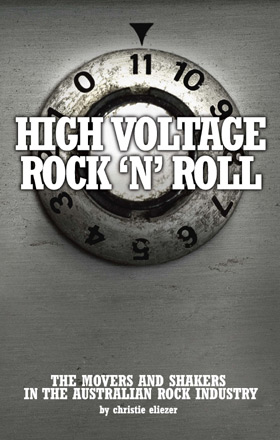 You must get sent newsworthy items for the round-up from many sources. How do you balance keeping the PR hyperbole in check in order to report on factual content?
You must get sent newsworthy items for the round-up from many sources. How do you balance keeping the PR hyperbole in check in order to report on factual content?
The whole idea is to present a picture of what’s been happening in the music scene in any given week. Sometimes it’s a thin line between hype and news. Generally if I feel comfortable, I’ll use the PR stuff. But a lot of the items are scoops and exclusives too, so it balances it out. The amount of people who feed me gossip is amazing!
Are you your own editor, or is there someone within themusic.com.au who proofs your work each week?
I always ask for the editors of magazines to look over my stuff. Sometimes when you’re rushing to finish a story, mistakes do slip in. Like the time when Bob Marley‘s band The Wailers were to tour here. My brain meant to say “The late Bob Marley’s former band The Wailers are coming”. But what I wrote — and I must have written it at 2 am — was “Bob Marley and The Wailers are coming”. This would have been a mite difficult as Marley had been dead for years.
Anyway, one of the local radio stations had a great time sending me up, by saying I had the power to make people come to life.
I read in High Voltage’s introduction that you became a freelance writer while still at school; what attracted you to this career?
Partly to impress girls, and partly because I loved music and had a flair for writing. I used to spend a lot of time in record stores and played drums in a high school band – I wasn’t good, nor was the band. I remember the first time I saw the video for The Rolling Stones‘ “Jumpin’ Jack Flash” which was so surreal and eerie that I knew I had to write about it.
I sent a story to a magazine called Go-Set, and they sent me a cheque. As a 15-year old, this cheque was twice the amount of money I was earning cutting grass and cleaning gutters for neighbours.
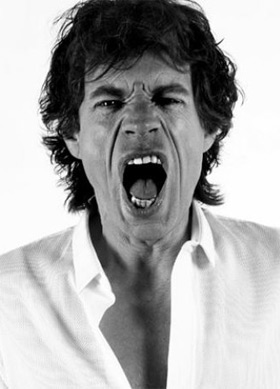 So I sent in another story. Back came another cheque. Another story. More cheques. Then the editor rang one day and asked if I wanted to interview The Rolling Stones. After that, I was hooked. Plans to become either a lawyer, a political journalist or a diplomat went out the window…
So I sent in another story. Back came another cheque. Another story. More cheques. Then the editor rang one day and asked if I wanted to interview The Rolling Stones. After that, I was hooked. Plans to become either a lawyer, a political journalist or a diplomat went out the window…
You’ve been in the industry since before internet usage became widespread, and now you use its capacity for information dissemination to syndicate your column across the world. Can you describe some of the changes you’ve seen in the industry across your 30-odd year career?
In terms of journalism, in the old days I had to “research” by going through old magazines. Now the internet gives me stuff in half a second – although, a lot of that info can be incorrect, so I do have to double check. Readers get news in seconds, so my approach to journalism is no longer just about breaking stories, but providing background to the stories.
And yes, my stuff – not just the column, but the other stories I write – is used across the world as a result. Someone estimated I reach a readership of 2.5 million a week.
In terms of the music industry, the short answer is that the music consumer is now in control. They can buy their record in a minute, which means the record stores or record companies who don’t have their music get ignored. There’s no longer the need to wait for weeks for delivery.
In the ’70s, if a consumer wanted to watch a music TV show like “Countdown“, they had to wait around the house from 6pm to 7pm on Sundays. Now they can video tape it, or they can see them on their mobiles and watch while they’re on the move.
The internet also means that music fans can find new styles and acts from other countries while surfing the net, they don’t have to wait for radio DJs or music journos to find these for them.
However, readers will always follow respected music journos – the ones who help to find new acts for them.
2.5 million readers per week – that’s astounding. How do you manage the responsibility associated with ensuring that your facts are correct; on deadline, do you just aim for ‘close enough’?
If you have this attitude “close is enough”, people will stop reading you and magazines will stop paying for your stuff. You have to get it right. If you’re not sure, say you’re not sure. If not, keep the story for a week.
Your comment about how readers will always follow respected music journalists is interesting. The manner in which blogs and web communities have allowed every punter to voice their opinion has resulted in powerful signals being lost amongst the noise; you’d understand this better than most. In this information age, how has the role of the music journalist changed?
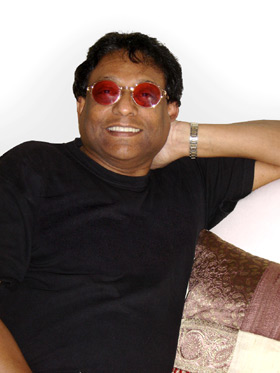 It hasn’t changed all that much. A good journalist will provide info with honesty and impartiality.
It hasn’t changed all that much. A good journalist will provide info with honesty and impartiality.
This is different from a blogger like Perez Hilton, who happens to hang out with artists and is now respected only because he breaks news stories. People love gossip!
The role of the music journalist hasn’t changed much since you started writing?
Nope, same as ever. Maybe there’s more of a need to be more responsible about what you write, because the internet takes you to billions of people, and you need to be careful of people’s reputations.
What do you love about music writing?
The sheer joy of an idea coming to fruition on the page. Your ideas are passed on to others. The biggest thrill is to do an interview which is so good that no-one else can match it.
What makes an interview so good that no-one else can match it?
You’ve got to research so well that the person being interviewed becomes comfortable and opens up. Doing the interview at their house helps.
What do you hate about music writing?
The long hours. Sometimes I have to work until 3 or 4 am. I love the fact it’s very quiet, but sometimes when the brain is tired, silly mistakes slip through.
Do you get out to see bands often? What kind of music excites you?
Yes, all the time! I also listen to demos, browse MySpace pages, talk to others in the music industry, and so on.
My favourite music is hard rock – The Stones, Zeppelin, The Who, Foo Fighters – but I also like hip hop, R&B, folk and world music. Only country music is something I don’t like.
How do you recognise a talented music journalist? Or, to phrase it another way: what qualities must a successful music journalist possess, in such a subjective industry that relies heavily upon personal tastes?
You can be impartial, or, given that music is such a personal taste, be subjective. I personally think you make more impact if you’re impartial with a touch of subjectivity.
Not exactly a question, but I’m guessing you have an enormous record collection.
25,000 CDs counted five years ago. Probably close to 30,000 now.
Whoa. Hefty. What’s your preferred method of listening to music?
CD or radio. If I turn it up, I like the music. If I turn it down, it’s crap. Very simple really.
So the iPod’s not good enough for Christie Eliezer?
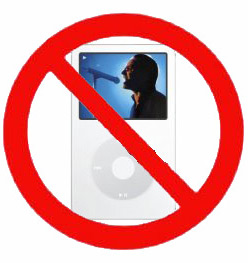
No, to be honest. The music’s on all day: either through the CD player in my study, or on the radio when I’m driving, or when I’m checking out acts on MySpace.
So sometimes it’s nice to take a break. I don’t listen to iPods even though people have given me some as gifts. On long trips, for instance, I prefer to read books or watch movies, just to get a break from music.
How do you keep your criticism in check when reporting on artists whose music you find terrible?
You either ignore them, or try like hell to find something!
You’re speaking at Brisbane’s Big Sound music industry summit in September 2009. Who approached you with this opportunity, and what are you planning to speak about?
I was approached by Stephen Green, who runs Big Sound.
Most likely I’ll talk about the need for acts to foster a strong relationship with the media, the need for them to create a strong image, and the best ways to market their acts.
I spoke at the Fuse Festival in Adelaide in March; I had to turn down speaking at music conferences in Tasmania and Darwin in July because I’ll be overseas, and I’ll be a panellist at the Australasian Music Business Industry conference in Sydney in August.
What do you enjoy about public speaking? Does it come easily to you, or do you find it difficult to step out from behind the pen, so to speak?
I used to be terrified in the early days. I was always nervous, and often wondering whether I was being boring or mediocre. But nowadays, I am quite relaxed, and I do enjoy it.
Music critic Everett True believes in being memorable, above all else, because “if you’re not memorable, then why the fuck are you writing about music?” Agree or disagree?
Depends on what you are being “memorable” for. Because you’re talented with great taste in music, or you can provide a new perspective to an issue? That’s fine.
Or because you’re controversial? Or just being trendy? Because you bag big names? The last three reasons are crap.
Do you strive to be memorable in your writing? What do you want the memory of Christie Eliezer to be associated with?
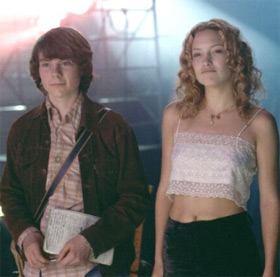
My writing is going to be around for ages, long after I’ve karked it. So I want to leave a worthy piece of work behind. If there’s a legacy, it’s that Christie Eliezer was part of a movement of rock journalists that improved the quality of rock journalism in Australia and abroad.
I’d hope people remember me as a writer who was fair and knowledgeable. More importantly, I hope that I made a difference to someone, somewhere.
Finally – you started music writing to impress girls, or at least in part. Did it work?
Bloody oath, mate! But I must admit that my singer mates got the good-looking ones, my roadie mates got the ugly ones, and I got the ones who wanted to read poetry to me!
Be a music journalist, get the babes. I knew I started writing about music for a reason. Thanks, Christie. He can be contacted via email. His excellent Australian music industry weekly round-up is updated each Tuesday afternoon.
awesome.
p.s. this comment was ‘a bit too short’ according to your nazi comment system so i’m trying to lengthen it right.. now.
Great interview. Christie is a scholar and a gentleman, was nice to read his thoughts on music journalism today.
Nice work. Also, bonus points for alt-text. “Into the bin!” Ha!
heh, i like that you provided an urban dictionary link for the term ‘karked’
Hi Andrew,
I came across your Christie Eliezer interview on your website, it’s interesting. Christie is a legend.
I have known Christie for many years who I met through my old bass player and associate editor of Drum Media Magazine Michael Smith who remains a close friend.
The reason I’m contacting you is my alt. rock band Cosmic Nomads has been re formed and we are releasing a single soon.
I was hoping to send you a copy and would be honoured if you would review it and possibly the follow up album early next year.
I can’t find your email, but would this be ok?
Cheers Ray Vanderby
http://www.cosmicnomads.com
Trackbacks for this post